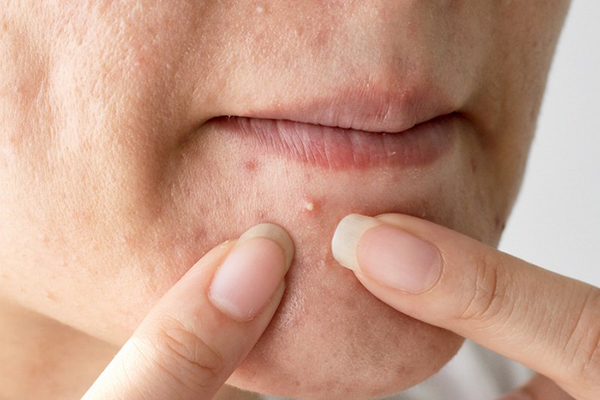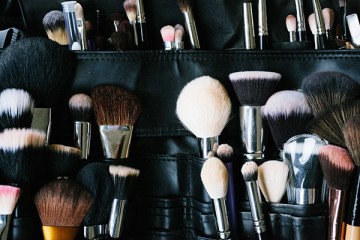How To Get Rid Of Pimples?
Why do pimples show up in the first place?
Pimples don’t just pop up randomly. There's usually a cascade of things going on inside the skin. Some people get them like clockwork, others only deal with the occasional flare-up. But most of the time, it's not just about what’s happening on your skin—what's happening inside matters just as much.
Oil overload (sebum production)
Your skin naturally produces sebum—a type of oil that keeps things moisturized. But when the sebaceous glands go into overdrive (which they tend to do during hormonal shifts), all that excess oil starts clogging up pores. Especially when it mixes with dead skin cells that haven’t been shed properly. Think of it like a traffic jam in your pores.
Bacteria settling in
Once pores get blocked, it becomes the perfect hangout spot for Cutibacterium acnes (used to be called P. acnes). These bacteria thrive in oily, low-oxygen environments. When they multiply, the immune system responds, which brings inflammation—and that’s when you start seeing redness, swelling, and the classic angry zit.
Hormonal shifts
This is a big one. Puberty, periods, pregnancy, switching birth control, stress—all of it can mess with hormones. And when hormones fluctuate, oil production usually spikes too. It’s why teenagers often struggle with acne, but it’s also why adult acne isn’t rare at all.
Dead skin not shedding properly
Your skin is constantly turning over. Dead cells rise to the surface and ideally flake off. But if that shedding process slows down—or if the dead cells get trapped in oil—they stick together and block pores. Which is exactly what gives pimples a chance to form.
Products that sneak in problems
Some makeup, skincare products, or even medications can stir up breakouts. Heavy creams, silicones, mineral oils—if they’re not marked “non-comedogenic” (meaning they don’t clog pores), they might end up being part of the problem. Even something like a hair product can cause breakouts around the forehead or back.

So… how do you get rid of them?
Clearing pimples isn’t about one miracle product. It’s more about piecing together a few consistent habits that work together over time. Some of it’s pretty basic. Some of it requires trial and error.
Start with clean skin—but don’t overdo it
Cleansing twice a day (morning and night) with a gentle face wash can make a big difference. Not to strip your skin, but to keep dirt, oil, and bacteria in check. The key is picking something that suits your skin type. If your skin’s already irritated or dry, avoid foaming cleansers with sulfates or added fragrance—they often make things worse.
Mild gel or cream cleansers tend to work better for acne-prone or sensitive skin. If the skin feels tight after washing, that’s usually a sign it’s been stripped too much.
Hands off the face
This one’s tougher than it sounds. Most people touch their faces constantly—without even realizing it. But every touch transfers bacteria, oil, and grime that’s built up on your hands throughout the day. And once that stuff gets pressed into already sensitive skin, breakouts get worse. Even leaning on your hand while working can be enough to cause a few new spots.
Non-comedogenic products matter more than people think
“Non-comedogenic” is one of those labels that seems like marketing fluff until you’ve dealt with months of stubborn acne. But it does mean something: the product has been tested and shown not to clog pores. For most people with acne-prone skin, switching over to non-comedogenic makeup, sunscreen, moisturizers—even shampoo—can reduce breakouts within a few weeks.
Still, it’s smart to skim ingredient lists. Some products are technically non-comedogenic but still contain ingredients that cause irritation or breakouts for certain skin types. (Coconut oil, for instance, is comedogenic for a lot of people.)
No popping, no picking
The temptation is real, especially with whiteheads. But every time you squeeze or pick at a pimple, you risk shoving bacteria deeper under the skin—or tearing it altogether. That’s when inflammation gets worse, and scars or dark marks become more likely. Post-inflammatory hyperpigmentation (those dark spots that stick around after a pimple’s gone) often takes way longer to fade than the original breakout.
Use spot treatments—but ease into them
Topical treatments can help a lot, especially if used early. The main ones you’ll see are:
-
Benzoyl peroxide: Kills bacteria and helps reduce oil. Usually comes in strengths from 2.5% to 10%. It can dry out the skin, so starting with a lower percentage is a good call. Works well on inflamed pimples.
-
Salicylic acid: This one’s more of an exfoliant. It helps loosen up dead skin and clean out clogged pores. Great for blackheads and whiteheads, and usually gentler than benzoyl peroxide.
Apply spot treatments only to affected areas—not all over the face—unless it’s a leave-on product designed for full-face use. And if skin starts to sting or flake, take a break or scale back.
Moisturizing isn’t optional
Skipping moisturizer when skin feels oily seems logical—but it usually backfires. Dehydrated skin tends to crank up oil production even more, which feeds into the breakout cycle. A lightweight, oil-free moisturizer (preferably labeled non-comedogenic) can help keep the skin barrier healthy and calm without making things greasy.
Hydration and diet help—but indirectly
No, drinking water won’t magically clear up acne—but it helps keep your skin functioning properly. Staying hydrated supports your body’s ability to heal, regulate oil, and flush out waste. As for food, the science is mixed, but high-sugar diets and dairy have been linked to acne in some people. It's not universal, but if breakouts tend to follow certain foods, it might be worth experimenting.
Stress is sneaky
Ever notice breakouts show up right before a big exam or during an overwhelming week? Cortisol (the stress hormone) can disrupt your skin in all kinds of ways—triggering more oil production and inflammation. Managing stress doesn’t mean going full zen, but small things help: walking, stretching, listening to music, journaling, or just getting a better night’s sleep.
Exercise helps, too—but rinse off after
Sweat itself isn’t the problem. It’s leaving it sitting on the skin after a workout. Mix sweat with bacteria and friction (from helmets, straps, or tight clothing), and you’ve got a recipe for breakouts. Quick rinse, gentle cleanser, breathable clothes—simple changes that make a big difference.

One last thing:
Clearing up pimples isn’t a straight line. Sometimes skin gets worse before it gets better. Some days it feels like everything’s working, and then boom—new breakout. That doesn’t mean the whole routine’s wrong. It usually means the skin’s still finding its balance.
There’s no perfect skin, just skin that’s being cared for consistently. And in the long run, that shows more than a temporary breakout ever will.






